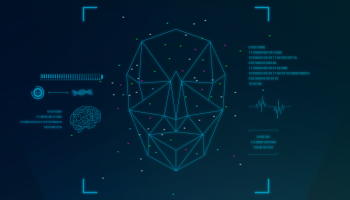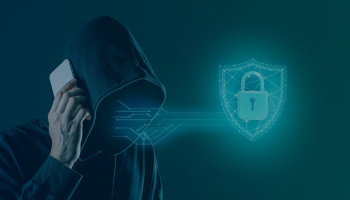Most of us were taught to “look for the padlock” in our browser bar before entering personal info online. That little icon means a site uses HTTPS, a more secure way to transfer data. But here in 2025, it’s no longer a true sign of safety.
Why? Because HTTPS only protects part of the story—the connection between your device and the website. Once you’re on the site, anything you do can still be tracked, logged, and even exploited.
In this post, we’ll break down:
- What HTTPS actually protects you from
- What it doesn’t protect you from
- How tracking still works behind the scenes
What HTTPS Actually Does?
HTTPS (Hypertext Transfer Protocol Secure) encrypts your data when it’s being sent from your device to a website. It makes sure that no one—like your internet provider or a hacker on public Wi-Fi—can see or change what you’re doing during that transfer.
It protects you from:
- Eavesdropping on login credentials or form data
- Hackers modifying the content on a page
- Fake websites pretending to be real ones (via certificate checks)
But it stops there. What happens after the data arrives at the website? That’s where the protection ends.
For real, end-to-end privacy, OrionVPN makes sure your data is encrypted before it even leaves your device.
Why HTTPS Isn’t a Full Privacy Solution?
A green padlock doesn’t stop tracking—it just means the data is encrypted while it’s on the move. Once it lands on the site’s server, your info can be stored, sold, or used to build an online profile.
What HTTPS doesn’t stop:
- Websites logging your activity
- Third-party cookies tracking you across the web
- Ads targeting you based on browsing habits
- Your IP address being used to identify you
Even HTTPS-enabled sites use advanced tracking tools that follow you from page to page.
OrionVPN hides your IP and location, breaking the link between your identity and your activity.
You’re Still Being Tracked—Even with HTTPS
Many users believe HTTPS means a site is “safe.” But safe from what? Your data is still being collected, stored, and analyzed—just behind an encrypted curtain.
You’re being tracked by:
- Cookies storing your login and usage info
- Browser fingerprinting identifying your device
- Ad trackers following your clicks and purchases
- Analytics tools measuring how long you stay on a page
And yes, all of this still happens on “secure” HTTPS sites.
A VPN like OrionVPN stops trackers from connecting your browsing to your real-life identity.
Fake Sites Use HTTPS Too
Today, even phishing and scam websites use HTTPS. It’s free and easy to get a certificate now, so that padlock is no longer a sign of trust.
Examples of HTTPS-secure scams:
- Fake banking websites that steal logins
- Lookalike shopping sites that steal payment info
- Spoofed email login pages used for phishing
You’re not safe just because the site has a padlock—scammers know users trust it.
OrionVPN shields your connection from man-in-the-middle attacks and prevents DNS hijacking on fake or malicious pages.
HTTPS Doesn’t Protect You on Public Wi-Fi
One of the biggest misconceptions is that HTTPS is enough to keep you safe on open networks. It’s not.
Risks of relying on HTTPS alone:
- Hackers can still set up fake Wi-Fi hotspots
- They can redirect you to spoofed versions of real sites
- Your device can still leak data to unencrypted sources
Public Wi-Fi is one of the most common ways people get hacked.
OrionVPN encrypts all traffic—even beyond what HTTPS covers—so you’re always protected on public networks.
You’re Still Exposed on Trusted Sites
Think popular sites like Amazon, Facebook, or Google are “safe” because they use HTTPS? Technically, yes—but they still collect and monetize everything you do.
What these sites track:
- Search terms
- Purchase history
- Ad clicks
- Device usage
- Location data
They log all this even on encrypted connections.
Using OrionVPN helps prevent these companies from linking your activity back to your home IP or location.
HTTPS Isn’t Enough on Mobile, Either
Most mobile apps use HTTPS—but that doesn’t mean they’re private. In fact, many apps track more data than websites do.
Mobile apps track:
- Your GPS location
- Your contacts and messages (with permission)
- Your device ID and app behavior
You’ll never see a green padlock in an app—but that doesn’t mean your connection is safe.
OrionVPN encrypts all traffic from your mobile apps—not just what happens in your browser.
Quick Recap: What HTTPS Can and Can’t Do
Here’s a breakdown to keep things clear:
| HTTPS CAN… | HTTPS CANNOT… |
| Encrypt your data during transit | Stop websites from tracking your behavior |
| Confirm the identity of the website | Hide your real IP address or physical location |
| Protect against data being changed | Block ad networks or cookies from collecting info |
| Make public Wi-Fi slightly safer | Prevent fake sites from tricking you entirely |
If you’re serious about privacy, you need to go beyond HTTPS.
OrionVPN fills the gaps that HTTPS leaves behind.
Why VPN + HTTPS = Full Protection
Using HTTPS without a VPN is like locking your front door but leaving the windows wide open. Combining HTTPS with a VPN gives you true privacy.
Together, they:
- Encrypt your traffic from the start to the end
- Hide your location and identity from websites
- Prevent surveillance by internet providers
- Protect you on both browsers and apps
OrionVPN ensures your entire internet session is private, not just what HTTPS covers.
Final Thoughts
The green padlock gave people a false sense of security. Yes, HTTPS is better than nothing—but in 2025, it’s not enough to protect your data or your privacy.
Websites are still watching. Hackers are still hunting. Advertisers are still building profiles. And all of it happens even on “secure” connections.
Here’s what you can do:
- Stop trusting the padlock as a full security signal
- Use privacy tools like tracker blockers and unique passwords
- And most importantly—use OrionVPN every time you go online




